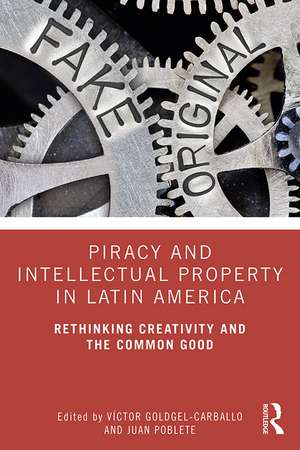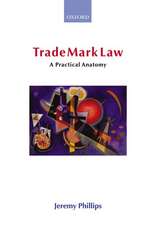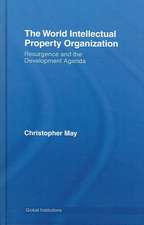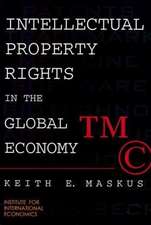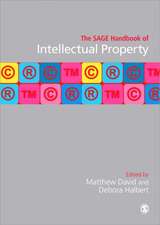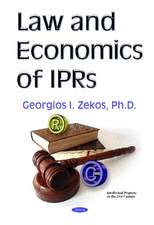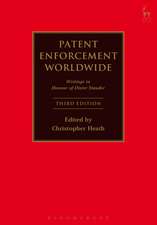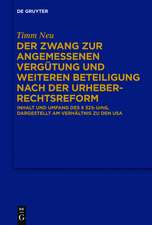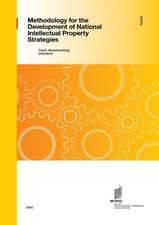Piracy and Intellectual Property in Latin America: Rethinking Creativity and the Common Good
Editat de Víctor Goldgel-Carballo, Juan Pobleteen Limba Engleză Paperback – 18 mar 2020
While piracy might just look like theft and derivative reproduction from the perspective of many right-holders, the contributors to this volume go beyond this economic-driven logic and show how practices of copying are in fact practices of reinvention that reflect the rich social networks and forms of creativity, authorship, commerce, and consumption that characterize informal economies. From a perspective informed by contemporary scenarios in Mexico, Brazil, Chile, Argentina, Peru, Guatemala, and the United States, they engage in a discussion of alternatives that—predicated on the importance of protecting culture—allow for other ways of conceiving prosperity at local, national, regional, and global levels. Examples discussed include video games, clothing, trinkets, music, film, TV, and books.
Designed to help understand the broader implications of IP and piracy for the field of Latin American studies, this book will be a major contribution to Global South studies, as well as to the growing bibliography on globalization, informal markets, and piracy.
| Toate formatele și edițiile | Preț | Express |
|---|---|---|
| Paperback (1) | 363.76 lei 6-8 săpt. | |
| Taylor & Francis – 18 mar 2020 | 363.76 lei 6-8 săpt. | |
| Hardback (1) | 766.85 lei 6-8 săpt. | |
| Taylor & Francis – 17 mar 2020 | 766.85 lei 6-8 săpt. |
Preț: 363.76 lei
Nou
Puncte Express: 546
Preț estimativ în valută:
69.61€ • 72.86$ • 57.93£
69.61€ • 72.86$ • 57.93£
Carte tipărită la comandă
Livrare economică 31 martie-14 aprilie
Preluare comenzi: 021 569.72.76
Specificații
ISBN-13: 9780367423995
ISBN-10: 0367423995
Pagini: 236
Ilustrații: 30
Dimensiuni: 152 x 229 x 15 mm
Greutate: 0.31 kg
Ediția:1
Editura: Taylor & Francis
Colecția Routledge
Locul publicării:Oxford, United Kingdom
ISBN-10: 0367423995
Pagini: 236
Ilustrații: 30
Dimensiuni: 152 x 229 x 15 mm
Greutate: 0.31 kg
Ediția:1
Editura: Taylor & Francis
Colecția Routledge
Locul publicării:Oxford, United Kingdom
Public țintă
Postgraduate, Undergraduate, and Undergraduate AdvancedCuprins
Introduction 1. How Trinkets Became Counterfeits: Value and Intellectual Property in a Low-income Market in Brazil 2. The Piracy Problem: Indigeneity, Hybridity, and the Racial Politics of IP Enforcement in Guatemala 3. Piracy and/as Legitimate Business 4. Piracy as Media Practice: The Informal Market of Music and Videos in Peru 5. Context as Content in Chilean Community Media 6. ‘Feeling Pirate’ as Media Affect in Mexican-American Experience 7. From Piracy as a Crime to Piracy as a Necessity: Territorial Inequalities and the Socially Necessary Market in Brazil 8. Book Piracy in Chile and the Proletarianization of Literature in Pedro Lemebel 9. Pirate Book Aesthetics in Contemporary Argentina 10. Between Abundance and Appropriation: Indeterminate Critiques of Global IP Schemes 11. The Creative Copy: Agency and Fashion at a Market for Counterfeited Garments Appendix: A Primer on Intellectual Property
Notă biografică
Víctor Goldgel-Carballo is an Associate Professor in the Department of Spanish and Portuguese at the University of Wisconsin-Madison.
Juan Poblete is Professor of Latin/o American Literature and Cultural Studies at the University of California Santa Cruz.
Juan Poblete is Professor of Latin/o American Literature and Cultural Studies at the University of California Santa Cruz.
Recenzii
"The essays in this collection expertly localize unauthorized use in Latin America, integrating on-the-ground production with globalizing discourses of circulatory legitimacy. The book should be required reading for those interested in the increasingly important role of digital textuality in emerging economies." — Alexander S. Dent, Associate Professor of Anthropology, The George Washington University
Descriere
Piracy and Intellectual Property in Latin America is the first sustained effort to present an alternative framework for understanding piracy and contemporary challenges to global discourses on intellectual property in the Americas.
